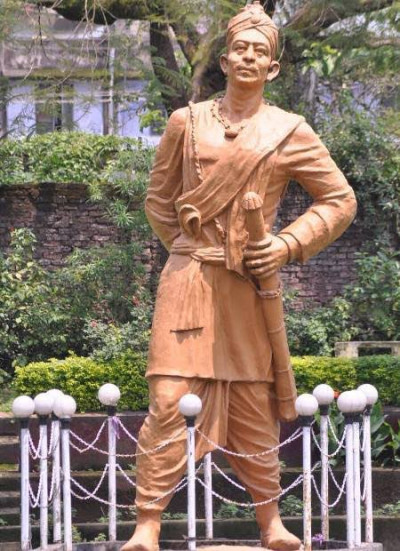Life & Legacy
Early Life and Background
Sarbananda Singha was originally associated with the Moamoria sect, which had deep socio-religious roots in Assam. Rising from this background, he became a central figure during the Moamoria rebellion against the Ahom rulers. Recognizing his leadership abilities, the Matak community chose him as their ruler and gave him the title “Swargadeo Sarbananda Singha.”
Establishment of the Matak Kingdom
In 1795, Sarbananda Singha established his capital at Bengmara (present-day Tinsukia), marking the beginning of the Matak Kingdom. His administration introduced new revenue systems, strengthened defense, and promoted trade and agriculture. He also emphasized religious patronage by supporting Vaishnavite satras (monasteries), thereby strengthening Assamese cultural and spiritual life.
Legacy of Sarbananda Singha
-
Regarded as the first ruler of the Matak Kingdom.
-
Unified the Matak community under a distinct political identity.
-
Contributed to the socio-cultural development of Upper Assam.
-
Remembered for his governance, justice, and support for religious institutions.
Conclusion
Sarbananda Singha remains a significant name in the history of Assam. His vision and leadership not only established the Matak Kingdom but also inspired a sense of unity and identity among the Matak people. Today, he is remembered as a symbol of resistance, governance, and cultural patronage in Assam’s history.
